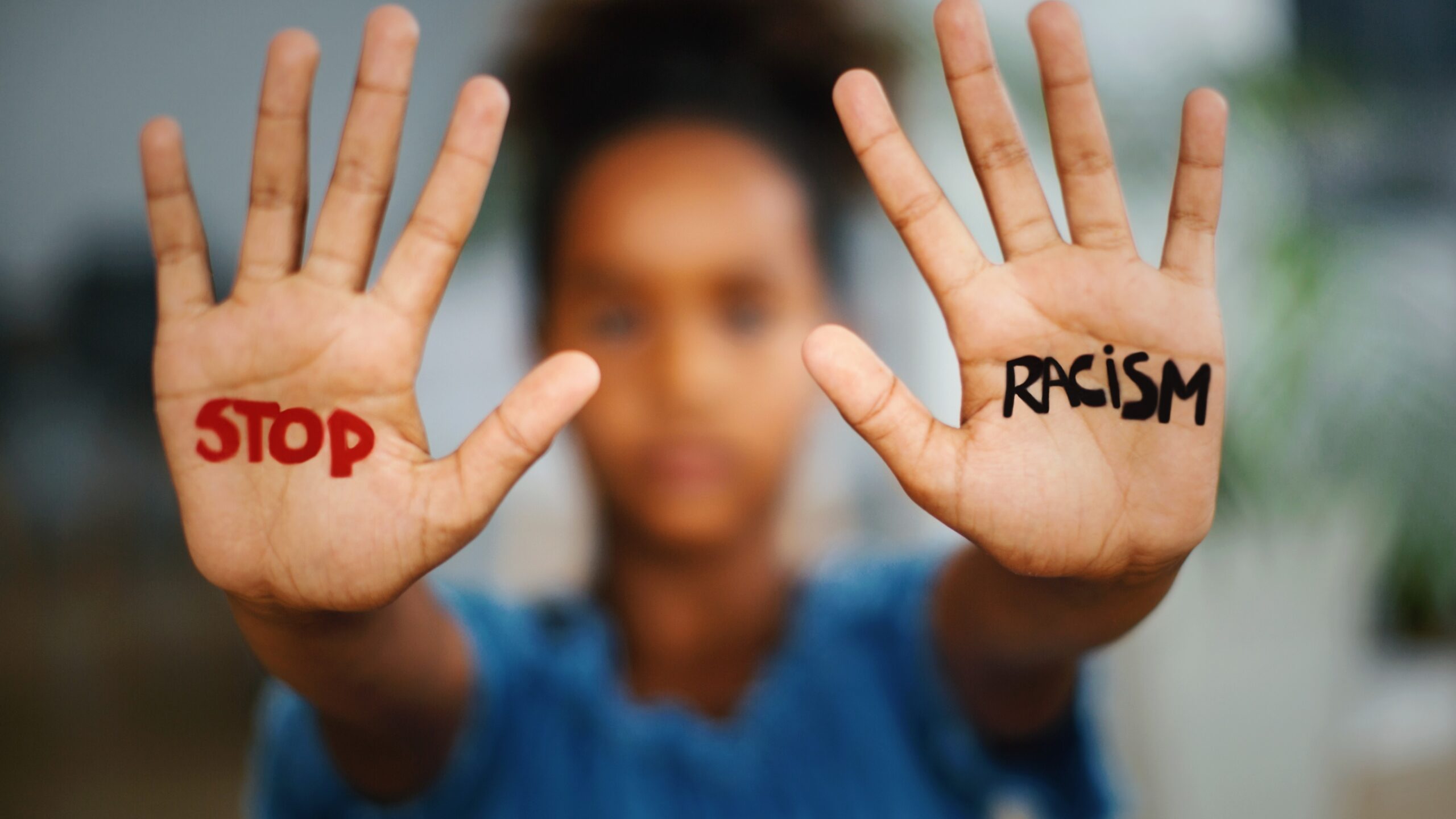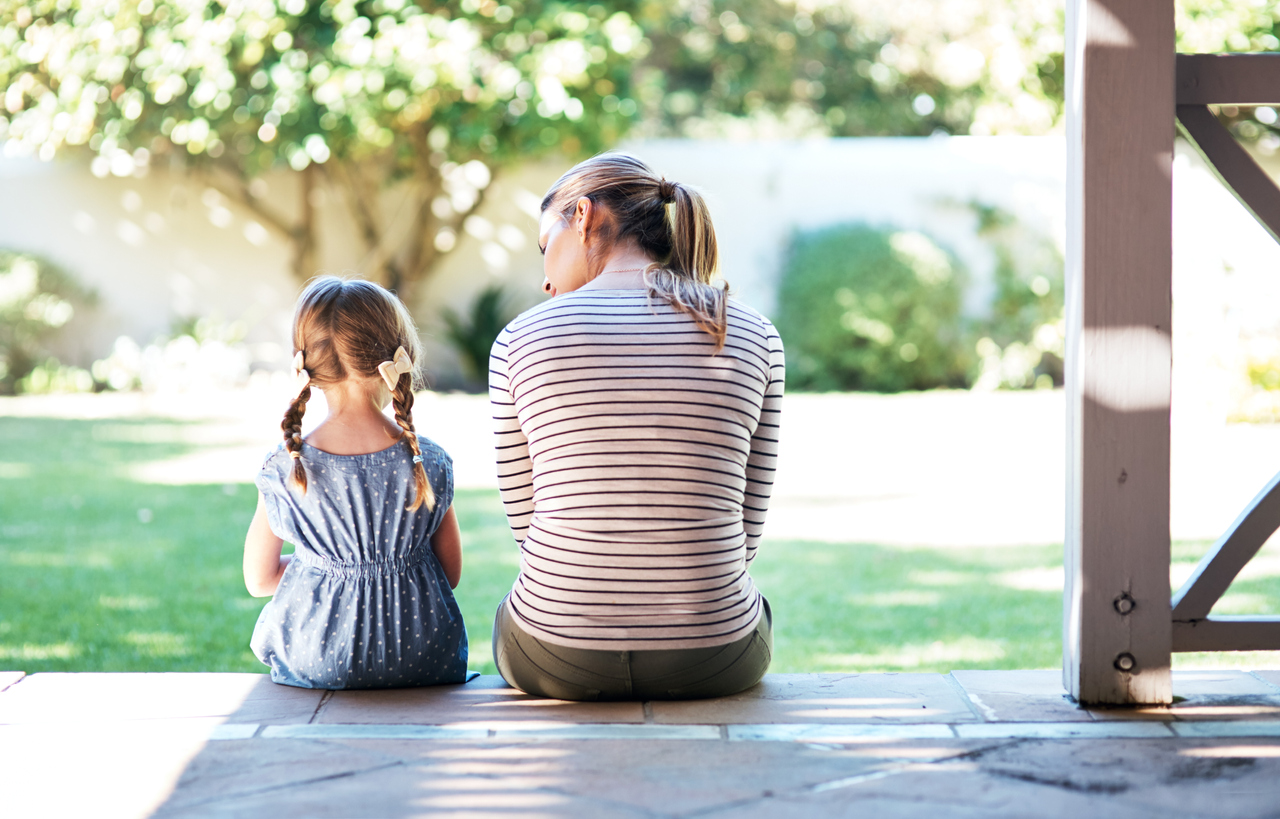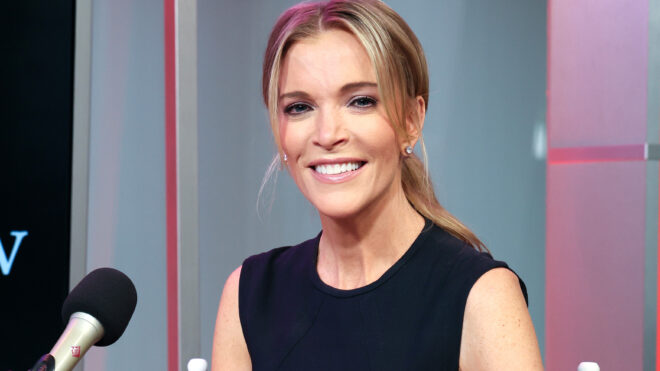
Right now, the United States is on the brink of what could possibly be real, sustained, actual change in terms of race relations in this country. This would truly be new: Black families, and many families of color, have been suffering in this country for at least 400 years. Right now, a lot of white families are waking up to the realities that black families and individuals have been struggling against for years in this country. And right now, a lot of families who are waking up are trying to figure out how to talk about racial injustice with their children.
Unfortunately for those families, there is not one magical list or tool that we can use and get perfectly non-racist white children as a result. Instead, there's just a lot of work that has to be done.
As with any conversation that has the potential to be difficult, it's best to start slow and with careful deliberation. While it might be tempting to sit your kids down and subject them to a three-hour nonstop lecture on racial injustice in the United States, that's not going to really teach them much. This is doubly true if you haven't been having these conversations with your kids at all until now.
Before you start diving into conversations about racial injustice and how to build a better country for all of its citizens, take time to remind yourself that as a white person, you are not the authority here. You can be a good person and believe very good things and do good work, but these conversations should not center your experience or your voice. As a white person, I can write about talking about racial injustice with my kid from that perspective, but only that one.
As a friend of mine, filmmaker Johwell Saint-Cilien, put it, "The continuing mistake allies make is entering the classroom with the intention of learning while sitting at the teacher's desk."
1. Begin by educating yourself, and acknowledge that you don't know everything.

When it comes to learning about racial injustice in the United States, every white person has work to do. Before any of us can ever sit down with our kids and try to explain how the social construct of race has damaged and destroyed the lives of countless black people and people of color in this country … we have to try to start learning it ourselves.
This doesn't mean you need to go out and buy 30 books that are about racism, read two of them, and then decide you've learned enough. There are a lot of smaller, easier ways you can learn a little bit each day. It doesn't have to be overwhelming, but the learning does have to be deliberate and consistent. And you have to feed your own mind before you can feed the minds of your kids.
When I first began trying to undo the implicit biases that live inside me as a white person, I started asking myself hard questions. Questions like:
- Do I cross the street when a black person is coming toward me? Do I want to?
- Do I ignore people who aren’t white unless I absolutely cannot?
- Do I have black neighbors?
- Does my kid have black classmates?
- Have I built a life for myself that centers white neighborhoods, voices, and people?
- How do I feel about the police?
- What would it take for me to call the police on a black person?
- What do I know about racism in the United States? What do I not know?
I am fond of writing things out, long-form, and I have notebooks filled with questions and answers. Since I’m just answering myself, I always make myself be as honest as possible. No one else will see what I write, but I will. For me, seeing my own, honest thoughts written out is very powerful. It helps me see where I need to learn and what steps I can take next.
We can do this work right alongside our kids, but we need to acknowledge that we're learning — together. No one is perfect (and no one ever will be). It's really crucial to make sure our children understand that, when it comes to racial injustice in the United States, as white people we are not and cannot be an expert (even though we're Mom or Dad!). How you explain that is up to you because the language you use might be different from what I would use.
Harvard even offers a free implicit bias test that you and your kids can take together. Do it, and then discuss the results — it's a great jumping-off point.
However you begin doing this work, know that it's something you can do right now, before you have kids, while you're pregnant, or while you're parenting toddlers. Your kids don't have to be old enough to understand it all yet, but you and they will reap the benefit that comes with you internalizing this new knowledge.
2. Elevate and empower black leaders and voices, but don't demand anything from them.

This can take a lot of forms: You can buy a bunch of books. You can change the media you consume as a family. You can adjust the accounts you do and do not follow on social media. It's easy to find very powerful black activists, thinkers, writers, lawyers, and artists on social media, and I encourage you to do so. You can find people who are doing very powerful racial justice work.
But here's what you don't need to do: Do not demand from these people that they focus their attention on you. Do not ask them what you need to do. Do not center yourself and your journey because you are newly awake to the realities of the world we live in. Instead, when you find an account that you especially like, Google that individual or organization. See what work they already have available. Pay them for that work. There are a lot of very thoughtful people who have already put together the very tools you may be looking for.
With a little bit of heavy lifting, you can find the information that makes sense for your family, and you can all learn from that.
Here are kid-friendly tools to dismantle racial injustice, from black leaders.
There are so many sites, books, and tools already available to you and your kids. Here are a few.
- Teachers Pay Teachers: This is kind of an oddball, but as a homeschooling mom I use this site all the time for my kid. What I love about it is that you can search any term, decide what budget you want to spend on a resource, and set the grade your child is in, and then boom: so many options! You can also deliberately choose resources that are created by black teachers. Check it out.
- The Ferguson Syllabus: This actually began as a series of tweets following the police killing of Michael Brown in Ferguson, Missouri. It’s been compiled into this list, and it’s incredible.
- How to talk to children about shootings: an age-by-age guide
- A syllabus for students when dealing with law enforcement
- 100 race-conscious things you can say to your children to advance racial justice
3. Talk to your kids about white supremacy and the internet.

A lot of us are into talking to our kids about being safe online, but one thing that might slip our minds to bring up is that the internet is definitely a very effective recruitment tool for white supremacy groups, and it can be hard for kids to even realize they're being recruited.
If you think that's far-fetched, or you think that your kids would never fall into this, read this account from a 13-year-old boy who was recruited by the alt-right via Reddit and Google:
“But while a quick burst of radiation probably won’t give you cancer, prolonged exposure is far more dangerous. The same is true for the alt-right. I knew that the messages I was seeing were wrong, but the more I saw them, the more curious I became. I was unfamiliar with most of the popular discussion topics on Reddit. And when you want to know more about something, what do you do? You probably don’t think to go to the library and check out a book on that subject, and then fact check and cross reference what you find. If you just google what you want to know, you can get the information you want within seconds.”
Then read what his mom had to say:
“My husband and I poured everything we had into nurturing an empathetic, observant child. Until then, it had seemed to be working. Teachers and family friends had always commented on Sam’s kindness and especially his gentleness toward the ‘underdog.’ Then an internet chorus of alt-right sirens sings their song of American History X to my kid and he turns into the evil twin of Alex P. Keaton: merciless, intolerant, unwilling to extend the benefit of the doubt to anyone.
"The pendulum had swung. And now it was stuck."
4. Make sure there are actually black lives in your family's circle.

I do not mean go out and make friends with the first black family you see, but if you don't have black friends right now, there are probably a few reasons why that might be:
- You truly live in an extremely homogeneous area that you never, ever leave.
- You may not deliberately avoid black people, but could be subconsciously overlooking black families and individuals as potential friends due to your own implicit biases.
- Black people may like you but not feel safe around you.
There are a multitude of other reasons why you may or may not have black friends and know black community members, but it’s worth examining if you don’t. No one can really figure this part out for you; it’s up to you to look at the choices you’ve made, the circles you move in, and your reasons for doing so to see if there are answers there.
One thing that we've done in our home has been to always include black people in the media and culture that we consume. Whether it's the books we read, the music we listen to, or the shows we watch, we have a great balance. As companies and studios have made steps toward more diverse casting, it's become a little easier, but you might be surprised by how white a lot of media is.
5. Remember that no question is too hard.

This one is last on the list, but I think it's actually really important. Odds are, if they're school-age, your kids want to talk about racial injustice with you. You might not have engaged in the topic at home, but they're probably hearing and seeing things at school, and they may even know more than you realize. Just don't be surprised if you think you're working yourself up to a hard conversation and your child is already two steps ahead of you and has questions about something you hadn't even thought about it.
In my experience, my son and I learn best together when I let him lead the way. I usually start hard conversations by asking him something like, "Oh, do you remember when we were talking about the man who was killed in Minneapolis last week?" and seeing what he says. We go back and forth, and then I always ask, "Do you have any questions or thoughts about that?"
And then with my kid … well, he just never stops. So feeding that learning becomes the job, and when I don't know, we look up answers.
And remember: A lot of black families have to have much harder conversations, from much earlier ages, with their kids all the time. You can handle this.




